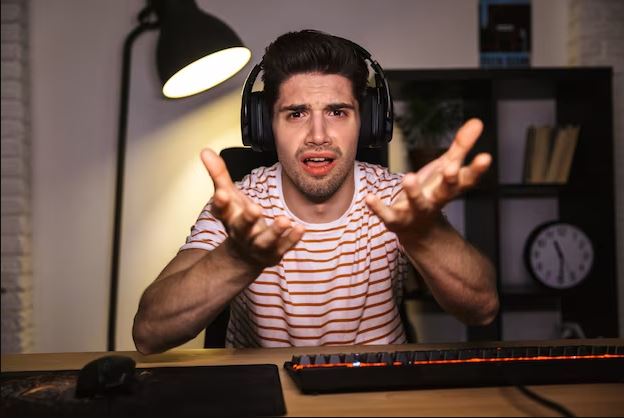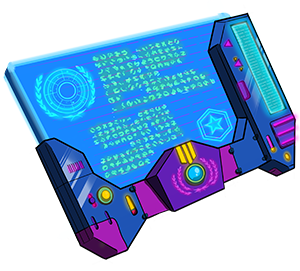Localization Quality Assurance (LQA) is the final step in the video game localization process. During this stage, LQA testers are tasked with playing through the game to examine its translated content for accuracy, quality, and relevance.
But why is LQA so important? In this blog, we’ll highlight some of the possible issues that may arise due to a lack of LQA, covering both the “linguistic side” of video games as well as external factors relating to cultural acceptance.
Immersion in Video Gaming
Video gaming has come a long way since the 80’s and 90’s. Back then, the video game industry was merely emerging and, in its infancy, trying to find itself a small place on the shelf beside music, film, and television. The audio and visuals were incredibly basic, and, in fact, what attracted players to retro games like Sonic the Hedgehog, Mario, Streets of Rage, Street Fighter, Mortal Kombat, Space Invaders, and Pacman was the gameplay. The games were fun to play.

Gameplay is still arguably the most important factor in the success of a video game. However, audio and visuals have advanced significantly and, consequently, have become increasingly influential, too. Nowadays, many video games seem almost life-like. The Last of Us 2, for example, featured gritty, chilling acoustics that immersed gamers in a rainy, dark, and apocalyptic Seattle. While titles like Horizon Forbidden West, Ghost of Tsushima, and Red Dead Redemption 2, all featured huge, detailed maps with beautiful, crisp visuals that made gamers feel transported into these worlds. Realism, in many cases, is what gamers have come to expect from modern titles.
A Game without LQA: The Nemesis of Gamer Immersion
Now, let’s imagine a world where these games received no LQA. Imagine playing the Red Dead Redemption series. You’re riding your horse through a hot, sandy canyon in the Mexican wilderness – it’s so detailed you can even feel the heat. The sound of a gun crackles. The audio is so sharp you can almost smell the gunpowder. As you enter a small town, you trot slowly, passing a stable, convenience store, and a saloon. They’re beautifully rendered and a hive of bustling activity as NPCs go about their business. You pass the town’s bank, but you notice something odd: instead of “El Banco”, it says “The Banco.” Then, one of those life-like NPCs challenges you to a duel. Great, you’ve practiced your aiming and you’re feeling confident. But, once again, you encounter another mistake: the NPC’s dialogue is filled with sloppy typos and spelling mistakes – as they rant at you about how slow of a shot you are. By now, the immersion is completely lost. You’re transported back to your living room. Distracted, you glance back at your TV just in time to witness the NPC shooting your game character before firing their pistols manically in the air.
Mistakes like these can happen, and they will ruin a gamer’s experience. They can significantly harm a game’s reputation, and, annoyingly, soak up all the attention – away from the game’s positives. Gamers make memes, while reviews in magazines and videos discuss how well-crafted the game is, only to end with a showcase on all the “humorous” translation errors they found. Not only is this frustrating for game developers, it can also be quite devastating when you consider how competitive the video game industry is.

Cultural Reception
A game’s reputation is also dependent on how it’s received in different cultures. While textual errors may result in ridicule, other oversights may be far more serious. LQA doesn’t just check for linguistic inaccuracies. It also tests how the game deals with sensitive themes and content in order to project how well-received the game will be in different cultures around the world.
Imagine a scenario where due diligence is overlooked. Maybe it’s a game about organized crime in 1930’s Chicago – the gameplay is slick, but the content is sensitive: violence, alcohol, gambling, sex, and prostitution all feature. This type of content is typically removed from games or changed before they are released in some regions that may find these themes offensive. This is because games can end up being banned, completely, from release in entire countries and regions, if the content is not suitable for the receiving culture.

Banning typically results in the focus, once again, being drawn towards negatives instead of all the game’s positives. Aside from loss of revenue and a damaged reputation, this type of error also risks alienating fans in those regions and therefore losing a loyal fan base. Ultimately, as video gaming has become more global, so has the need to think “globally” about its content.
The Takeaway
LQA is essential because it provides a safety net that involves testing and evaluation of translated content – at a linguistic level and beyond – to ensure accuracy and sensitivity are well-practiced. This means that focus may remain firmly on all the positives: how beautiful a game looks, how sharp it sounds, and how fun it is to play.



